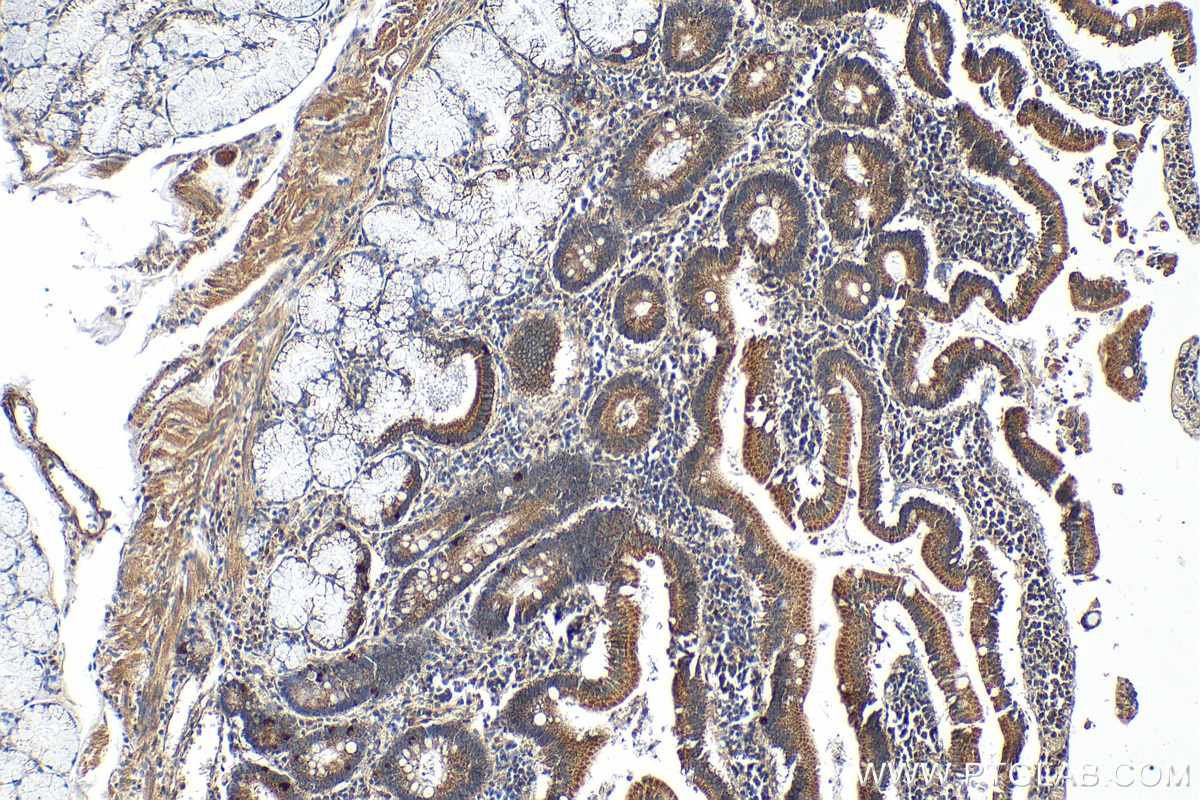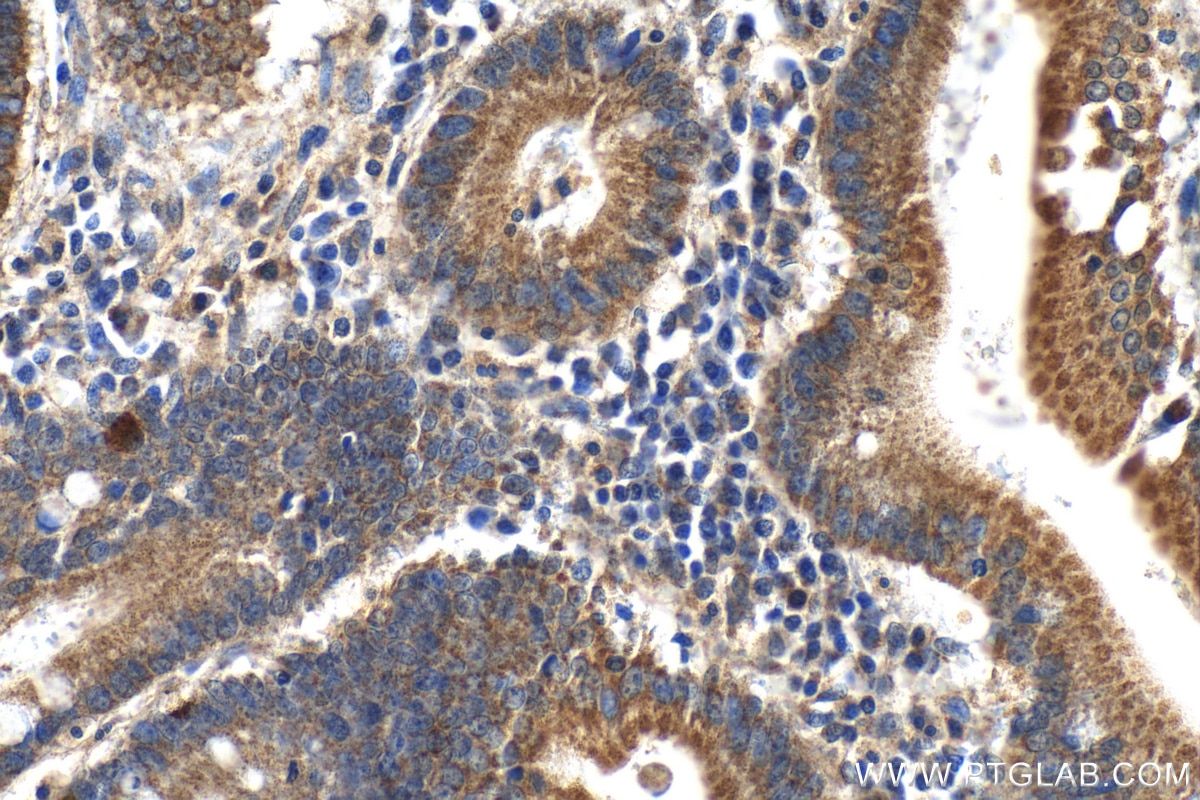SLC44A5 Polyclonal antibody
SLC44A5 Polyclonal Antibody for IHC, ELISA
Host / Isotype
Rabbit / IgG
Reactivity
human
Applications
IHC, ELISA
Conjugate
Unconjugated
Cat no : 21117-1-AP
Synonyms
Validation Data Gallery
Tested Applications
| Positive IHC detected in | human stomach tissue Note: suggested antigen retrieval with TE buffer pH 9.0; (*) Alternatively, antigen retrieval may be performed with citrate buffer pH 6.0 |
Recommended dilution
| Application | Dilution |
|---|---|
| Immunohistochemistry (IHC) | IHC : 1:50-1:500 |
| It is recommended that this reagent should be titrated in each testing system to obtain optimal results. | |
| Sample-dependent, Check data in validation data gallery. | |
Product Information
21117-1-AP targets SLC44A5 in IHC, ELISA applications and shows reactivity with human samples.
| Tested Reactivity | human |
| Host / Isotype | Rabbit / IgG |
| Class | Polyclonal |
| Type | Antibody |
| Immunogen | SLC44A5 fusion protein Ag15459 相同性解析による交差性が予測される生物種 |
| Full Name | solute carrier family 44, member 5 |
| Calculated molecular weight | 719 aa, 82 kDa |
| GenBank accession number | BC051740 |
| Gene symbol | SLC44A5 |
| Gene ID (NCBI) | 204962 |
| Conjugate | Unconjugated |
| Form | Liquid |
| Purification Method | Antigen affinity purification |
| Storage Buffer | PBS with 0.02% sodium azide and 50% glycerol pH 7.3. |
| Storage Conditions | Store at -20°C. Stable for one year after shipment. Aliquoting is unnecessary for -20oC storage. |
Background Information
The choline transport system has been categorized into three transporter families: Polyspecific organic cation transporters (OCTs/SLC22A1-2) with low affinity for choline, high-affinity choline transporter 1 (CHT1/SLC5A7) and intermediate-affinity choline transporter-like proteins (CTLs/SLC44A1-5). the CTLs/SLC44A1-5 were shown to be present in various human tissues. SLC44A5, also known as CTL5, is an integral membrane protein. SLC44A5 is involved in the membrane-spanning transport of choline.
Protocols
| Product Specific Protocols | |
|---|---|
| IHC protocol for SLC44A5 antibody 21117-1-AP | Download protocol |
| Standard Protocols | |
|---|---|
| Click here to view our Standard Protocols |



